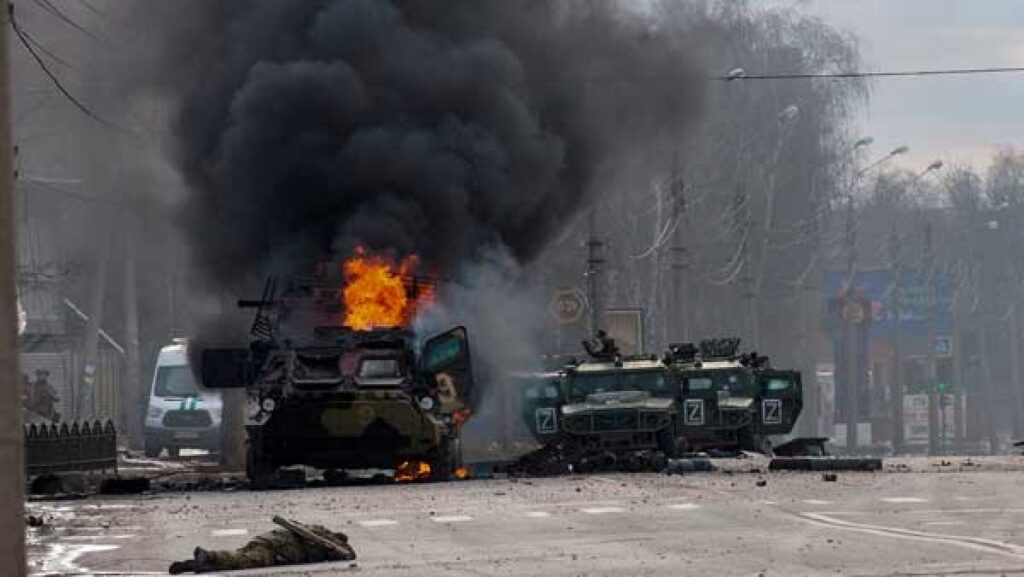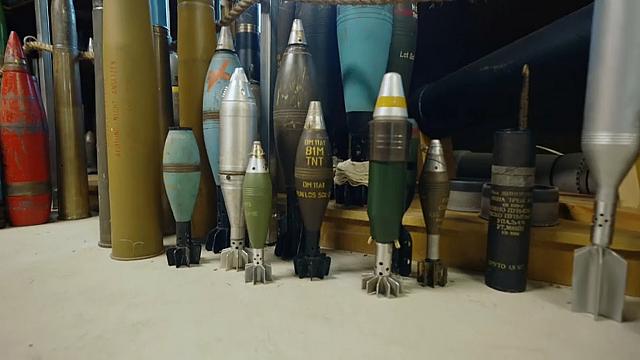
As the fighting rages in and around Kyiv, Ukraine’s ambassador to the United States and human rights organisations have accused Russia of employing cluster bombs and vacuum bombs on Ukrainians. Several international organisations, including Amnesty International and Human Rights Watch, have condemned the weaponry.
Russian soldiers appeared to have used widely banned cluster munitions, according to the organisations, with Amnesty accusing them of striking a preschool in northern Ukraine while civilians sought refuge inside. Meanwhile, Oksana Markarova, Ukraine’s ambassador to the United States, said that Moscow had deployed a thermobaric weapon, also known as a vacuum bomb.
“They used the vacuum bomb today. The devastation that Russia is trying to inflict on Ukraine is large,” the ambassador told reporters. The Ukrainian claims are yet to be confirmed on the ground and Reuters quoted White House Press Secretary Jen Psaki saying, “If that were true, it would potentially be a war crime.” She noted that there are international organisations that would assess that and President Joe Biden’s administration “would look to be a part of that conversation.”
What exactly is a Vacuum bomb?

Weapons have been upgraded in tandem with technological advancements and the fast-paced nature of battle. While conventional guns use explosives to hurl metal shards at targets, a new type of ammunition focuses on blast as its principal output. Thermobaric weapons are one example of a weapon that makes use of the effects of temperature and pressure on a target.
A vacuum bomb, also known as a thermobaric weapon, draws oxygen from the surrounding air to produce a high-temperature explosion with a blast wave that lasts much longer than a normal explosive and is capable of vaporising human beings.
It is a two-stage munition, with the first charge dispersing aerosols made up of very fine material ranging from carbon-based fuel to microscopic metal particles. The second charge ignites the cloud, causing a shock wave that absorbs oxygen and creates a vacuum around the target. Experts have warned that a vacuum bomb’s explosion wave lasts much longer than regular explosives.
Munition that is extremely dangerous

International humanitarian law, according to Amnesty International, prohibits the use of weapons that are inherently indiscriminate, such as cluster munitions. It is a war crime to launch indiscriminate assaults that kill or hurt civilians. While vacuum bombs will not penetrate a tank, they might be an extremely deadly weapon against an apartment complex or other building, according to Dr. Marcus Hellyer, senior analyst at the Australian Strategic Policy Institute.
“They aren’t prohibited, despite the fact that their effects can be quite awful, due to the impact of generating a vacuum and sucking the air out of defenders’ lungs.” Dr. Hellyer continued, “One thing we know about Russian methods is that they are willing to destroy everything.”





